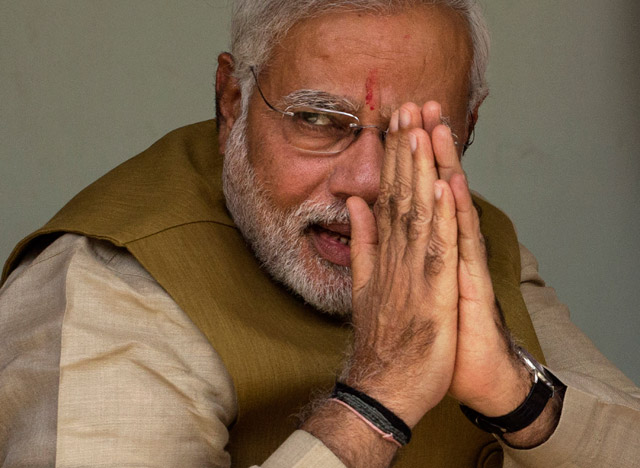Prime Minister Narendra Modi is set to arrive in Cyprus this Sunday, making history as the first Indian PM to visit the island nation in more than twenty years. His visit comes as part of his journey to the G7 summit in Canada, which will take place from June 15 to 17.
Modi’s stopover in Cyprus is drawing extra attention because it happens at a time when diplomatic tensions between India and Turkey are running high. This marks only the third visit ever by an Indian Prime Minister to Cyprus, following Atal Bihari Vajpayee in 2002 and Indira Gandhi in 1983, and many are watching closely to see what message this high-profile trip will send.
The timing is especially significant. Cyprus is preparing to take over the presidency of the European Union Council next year, even as tensions with Turkey remain unresolved. Modi’s trip is widely seen as a strategic move to reaffirm India’s strong support for Cyprus and to send a pointed message to Turkey, particularly after Ankara’s recent vocal backing of Pakistan on the Kashmir issue.
India and Cyprus: A Relationship of Mutual Trust
India and Cyprus have enjoyed a warm, cooperative relationship since the early 1960s. India was one of the first countries to recognise Cyprus after its independence from Britain in 1960, with formal diplomatic ties established in 1962. Over the years, both nations have stood by each other on the world stage. Cyprus has consistently supported India’s position on Kashmir and its campaign for a permanent seat on the United Nations Security Council. In return, India has firmly backed Cyprus’s sovereignty and territorial integrity, especially after Turkey’s 1974 invasion of northern Cyprus.
India-Cyprus friendship is marked by regular high-level visits, cultural exchanges, and collaboration in education, defence, and trade. India has contributed troops to the United Nations Peacekeeping Force in Cyprus, and both countries have signed agreements on defence, migration, and renewable energy. Cyprus has honoured Indian icons like Mahatma Gandhi, while India has celebrated Cyprus’s first President, Archbishop Makarios.
On the economic front, Cyprus has served as a gateway for Indian investments into Europe. Indian companies have found opportunities in sectors such as shipping, tourism, and IT. The two countries are also working together on the India-Middle East-Europe Economic Corridor (IMEC), which aims to boost trade and connectivity between India, the Middle East, and Europe.
The Cyprus-Turkey Dispute: Decades of Division
The conflict between Cyprus and Turkey is one of the world’s longest and most complicated political standoffs. After Cyprus gained independence from Britain in 1960, the island was set up as a republic to protect both Greek and Turkish Cypriots. But the two communities had different aspirations—most Greek Cypriots wanted unification with Greece, while Turkish Cypriots feared for their safety and pushed for greater independence or even partition.
The crisis erupted in July 1974, when a coup backed by the Greek military tried to force Cyprus to join Greece. In response, Turkey, claiming to protect Turkish Cypriots, sent its army into northern Cyprus. After two military offensives, Turkey ended up controlling about a third of the island.
This intervention had dramatic consequences. Around 150,000 Greek Cypriots—over a quarter of the population—were forced to flee the north, while about 60,000 Turkish Cypriots moved north from the south. The United Nations quickly established a buffer zone, the “Green Line,” which still divides the island and even splits the capital, Nicosia—Europe’s last divided capital.
In 1983, the Turkish-controlled north declared itself the Turkish Republic of Northern Cyprus (TRNC), recognised only by Turkey. The rest of the world, including the UN and EU, recognises only the Republic of Cyprus. The Turkish military presence in the north is widely seen as an illegal occupation.
Multiple attempts to reunite the island have failed, with the United Nations leading talks aimed at creating a united, power-sharing country. The main obstacles are disagreements over power-sharing, property rights, and whether Turkish troops should remain. In recent years, Turkish Cypriots, with Turkey’s backing, have demanded recognition of the north as a separate state, while Greek Cypriots insist on a single, united country.
The situation has grown even more complex with the discovery of natural gas in the waters around Cyprus. The Republic of Cyprus has made deals with other countries to explore these resources, but Turkey objects, insisting that Turkish Cypriots should have a say. This has led to tense standoffs at sea, with Turkish ships conducting their own explorations.
Despite occasional talks, the island remains divided. Greek Cypriots favour a federal solution with two communities in one country, while Turkish Cypriots and Turkey now push for a two-state solution.
What Modi’s Visit Means for India and the Region
PM Modi’s visit to Cyprus is significant for several reasons. It reaffirms India’s steadfast support for Cyprus at a time when Turkey is openly backing Pakistan on issues like Kashmir. By strengthening its partnership with Cyprus, India is signalling its intent to play a bigger role in Mediterranean and European affairs.
Cyprus’s upcoming EU Council presidency offers India a chance to deepen its engagement with the EU, especially in trade, technology, and climate change. Stronger ties with Cyprus can help India push its interests in the European market and global forums.
Cyprus is also a key partner in the India-Middle East-Europe Economic Corridor, a strategic project connecting India with Europe via the Middle East. Closer cooperation with Cyprus will help India secure its interests in this corridor and expand its economic reach.
Finally, Modi’s visit sends a clear diplomatic message to Turkey and the wider region: India stands by its old friends and is unafraid to make bold moves as global alliances shift. For Cyprus, India’s support is a vital counterbalance to Turkish pressure and a boost to its standing on the international stage.


